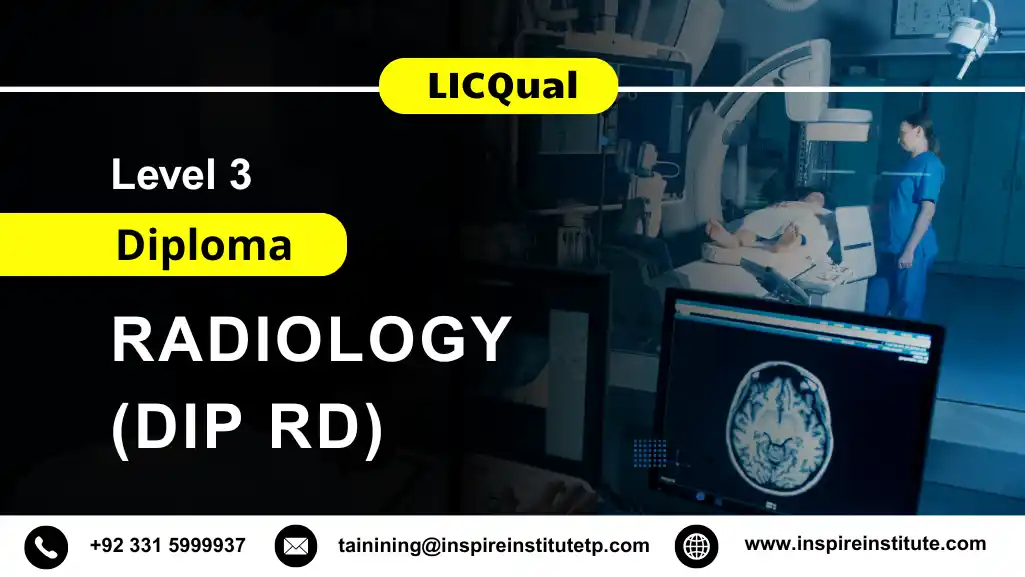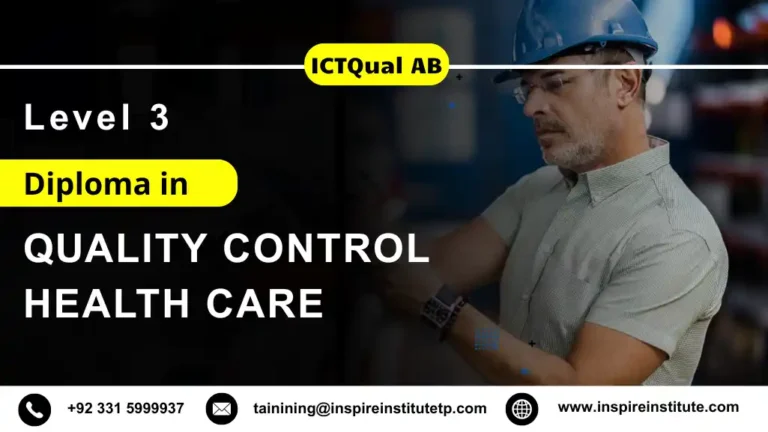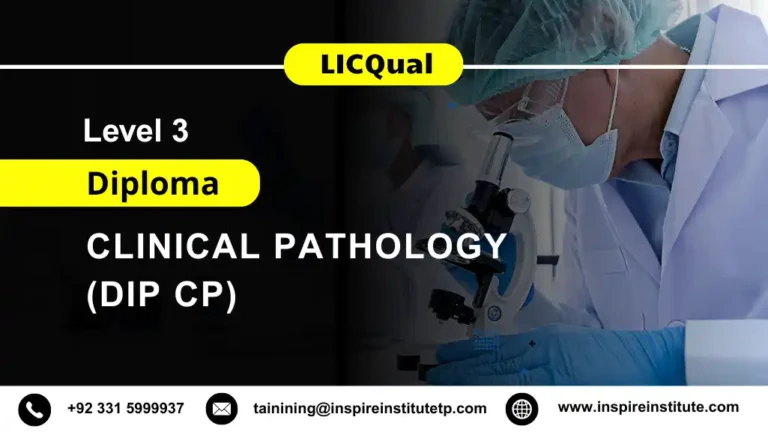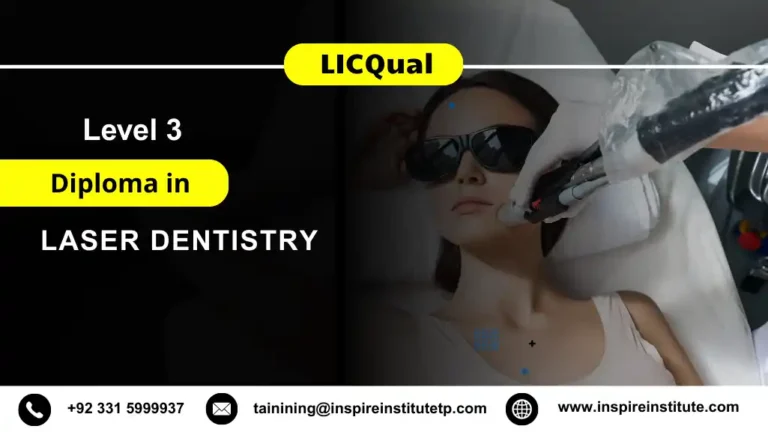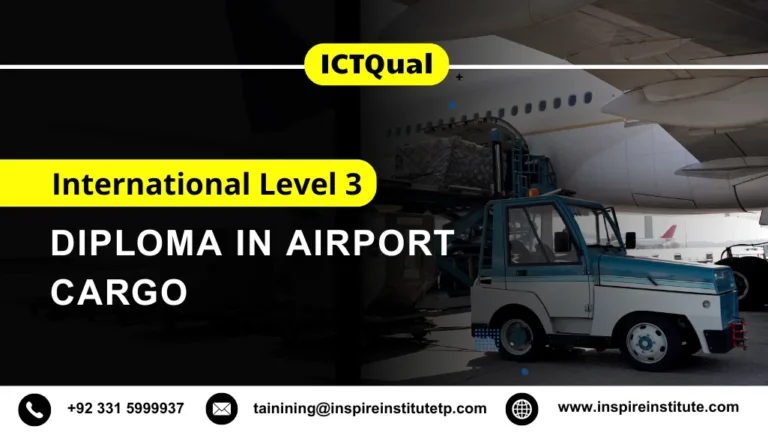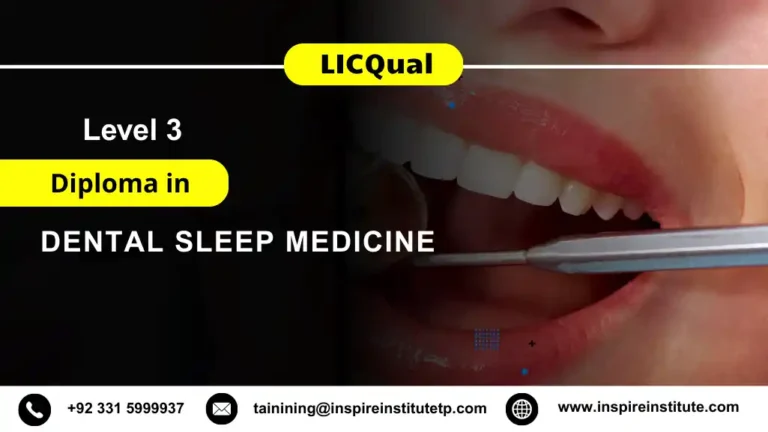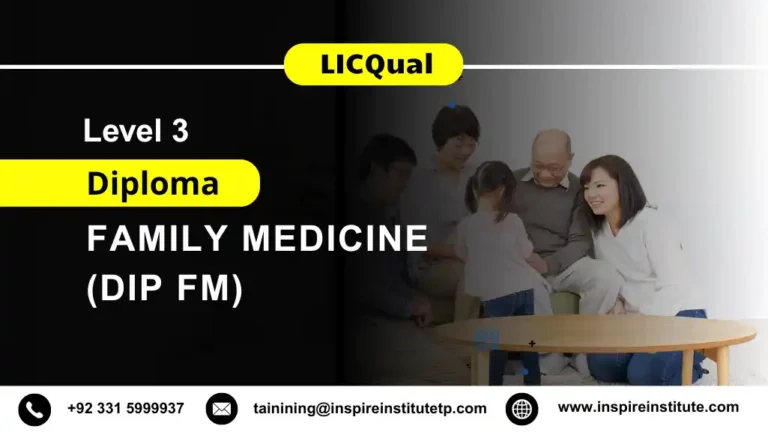LICQual Level 3 Diploma in Radiology (Dip RD)
The LICQual Level 3 Diploma in Radiology (Dip RD) is a comprehensive qualification designed for individuals seeking to advance their expertise in the vital field of radiology. Radiology plays a critical role in modern healthcare, enabling accurate diagnosis, treatment planning, and patient care through advanced imaging techniques. This course offers learners a unique opportunity to gain both theoretical knowledge and practical skills essential for a successful career in radiographic services.
This radiology diploma course provides an in-depth understanding of medical imaging principles, radiographic procedures, radiation safety, and patient care protocols. Learners will explore diagnostic techniques, including X-ray imaging, computed tomography (CT), magnetic resonance imaging (MRI), and other emerging technologies. Emphasis is placed on developing professional competence, critical thinking, and ethical practice in clinical settings.
By enrolling in the LICQual Level 3 Diploma in Radiology, learners will acquire the practical skills and academic knowledge necessary to operate imaging equipment safely, interpret radiographic results, and contribute effectively to healthcare teams. This qualification is ideal for aspiring radiographers, healthcare assistants, and professionals aiming to enhance their career prospects in medical imaging and diagnostic services.
Upon completion, learners will demonstrate proficiency in radiology techniques, adherence to safety standards, and the ability to support patient-centered care. This professional radiology course not only equips learners with technical expertise but also prepares them for real-world clinical applications, making it a vital stepping stone for a rewarding career in healthcare.
Why Choose this Qualification
The LICQual Level 3 Diploma in Radiology (Dip RD) is a UK-accredited qualification designed for healthcare professionals aiming to advance their expertise in medical imaging, radiographic procedures, and diagnostic care. This assignment-based programme combines theoretical knowledge with practical application, enabling learners to understand imaging techniques, radiation safety, and patient-centered practices essential in modern radiology. Structured for flexibility, it supports professionals balancing clinical responsibilities with continuing education.
Key Reasons to Choose this Qualification:
Specialist Knowledge: Gain a comprehensive understanding of radiology, including X-ray imaging, computed tomography (CT), magnetic resonance imaging (MRI), and emerging diagnostic technologies. Learn essential principles of radiation protection, image analysis, patient positioning, and quality assurance to ensure accurate and safe diagnostic procedures. This knowledge equips professionals to deliver high-quality, evidence-based radiographic care.
Practical Application: Develop competence in operating imaging equipment, performing diagnostic scans, evaluating radiographic images, and supporting patient care during imaging procedures. Learners also acquire skills in maintaining radiation safety standards, documenting findings, and collaborating with multidisciplinary healthcare teams to optimize patient outcomes.
UK-Accredited Diploma: Earn a UK-recognised qualification that validates radiology expertise and enhances professional credibility. Accreditation ensures alignment with international healthcare standards, making this diploma valuable for radiographers, healthcare assistants, clinicians, and allied health professionals seeking to specialise in diagnostic imaging.
Flexible Learning Pathway: Benefit from an assignment-based structure that allows learners to progress at their own pace while continuing to work in clinical settings. This flexible format supports busy professionals seeking academic advancement without interrupting patient care.
Evidence-Based Training: Explore current research, clinical protocols, and best practices in radiology. The programme emphasises safe imaging techniques, ethical practice, patient engagement, and quality assurance to improve diagnostic accuracy and healthcare outcomes.
Career Development: Expand career opportunities in hospitals, diagnostic centers, clinics, and healthcare education. The LICQual Level 3 Diploma in Radiology equips learners with the skills and knowledge to contribute to accurate diagnosis, effective treatment planning, and professional growth in the growing field of medical imaging.
The LICQual Level 3 Diploma in Radiology (Dip RD) empowers healthcare professionals with the knowledge, practical skills, and UK-accredited recognition required to deliver high-quality, safe, and patient-centered radiographic services.
Course Overview
LICQual UK Awarding Body
Average Completion Time:
4-12 Months
Study Units: 6 Units
Evidence & Assignment Based
Mandatory Units
Who Should Take This Course
The LICQual Level 3 Diploma in Radiology (Dip RD) is a UK-accredited radiology diploma course tailored for individuals who want to gain specialist knowledge, practical skills, and career-focused training in medical imaging and diagnostic procedures. This radiology training course is suitable for both beginners and professionals in healthcare, enabling them to apply imaging techniques, ensure patient safety, and contribute effectively to diagnostic and treatment processes. With its assignment-based structure, the diploma supports flexible learning while maintaining rigorous academic and professional standards.
This Course is Suitable For
1. Aspiring Radiology Students
- Build a strong foundation in medical imaging techniques and diagnostic practices.
- Gain measurable competence in radiation safety and patient care protocols.
- Develop skills in operating imaging equipment under guided supervision.
- Enhance career readiness for entry-level positions in radiology and healthcare.
2. Radiographers and Imaging Technicians
- Strengthen diagnostic imaging skills through practical applications.
- Improve the ability to interpret radiographic results with precision.
- Acquire updated knowledge of international standards in radiology.
- Demonstrate measurable improvements in image quality and patient outcomes.
3. Healthcare Assistants and Nursing Staff
- Gain specific skills to support radiology procedures and patient care.
- Learn safe handling, positioning, and preparation of patients for imaging.
- Develop a measurable understanding of radiation safety in clinical practice.
- Enhance teamwork skills by collaborating effectively in imaging departments.
4. General Practitioners and Medical Doctors
- Improve knowledge of diagnostic imaging for clinical decision-making.
- Learn to identify when and how to recommend imaging procedures.
- Strengthen measurable competence in understanding radiographic reports.
- Enhance patient management through evidence-based diagnostic practices.
5. Allied Health Professionals
- Acquire cross-disciplinary knowledge to support rehabilitation and care.
- Understand the measurable role of radiology in physiotherapy and emergency care.
- Develop competence in radiation awareness relevant to patient safety.
- Improve collaborative practice with radiographers and medical staff.
6. Medical and Healthcare Students
- Gain early exposure to radiology as part of their academic journey.
- Develop measurable technical knowledge in imaging procedures and protocols.
- Enhance employability by adding a UK-accredited radiology qualification.
- Build a foundation for further study or specialization in diagnostic imaging.
7. Career Changers Entering Healthcare
- Acquire a professional qualification to transition into the healthcare sector.
- Learn measurable and transferable skills in patient care and radiology.
- Understand safe imaging practices applicable to clinical environments.
- Increase employability in hospitals, diagnostic centers, and private clinics.
8. International Healthcare Professionals
- Earn a UK-accredited qualification recognized globally.
- Align measurable skills with international standards in medical imaging.
- Enhance professional credibility in diverse healthcare settings.
- Expand career opportunities in hospitals, diagnostic labs, and global health services.
The LICQual Level 3 Diploma in Radiology (Dip RD) is designed for a wide range of learners, from students beginning their medical imaging journey to experienced healthcare professionals seeking advanced radiology training. This course equips learners with measurable, practical, and evidence-based skills that align with international standards, ensuring they can confidently pursue a successful career in radiology and contribute to improved patient care and diagnostic excellence.
Course Benefits
The LICQual Level 3 Diploma in Radiology (Dip RD) provides significant benefits for healthcare professionals and aspiring radiology practitioners seeking to enhance their expertise in diagnostic imaging, patient care, and radiation safety. By combining strong theoretical foundations with practical application, this diploma equips learners to deliver safe and accurate imaging services, support effective diagnosis, and contribute to improved healthcare outcomes. Designed as a flexible, assignment-based programme, it fosters professional growth while maintaining clinical and academic excellence in modern radiology practice.
Key Benefits of the Course:
- Specialist Knowledge: Gain a comprehensive understanding of radiology, medical imaging principles, radiation physics, and diagnostic procedures. Learners explore technologies such as X-ray, CT, MRI, and ultrasound, while studying radiation protection standards, imaging protocols, and patient-centered diagnostic approaches, enabling accurate and evidence-based practice.
- Practical Application: Develop competence in operating imaging equipment, positioning patients for accurate scans, and applying radiation safety procedures. Learners also build skills in evaluating radiographic images, maintaining imaging quality, and collaborating with multidisciplinary healthcare teams, ensuring practical application in hospitals, clinics, and diagnostic centers.
- Recognised Qualification: Earn a UK-accredited diploma that validates professional expertise in radiology and opens opportunities in diagnostic imaging, hospital services, private clinics, and global healthcare organisations. Accreditation ensures alignment with international standards and radiology best practices.
- Flexible Learning Pathway: Benefit from an assignment-based structure that allows learners to progress academically while balancing professional responsibilities. This flexible format is ideal for healthcare practitioners and students managing clinical commitments alongside further education.
- Evidence-Based Training: Explore current research, industry protocols, and technological advancements in radiology. Learners are trained to adopt modern diagnostic methods, apply ethical imaging practices, and prioritise both patient safety and diagnostic accuracy in real-world healthcare settings.
- Career Development: Expand career opportunities in radiology, diagnostic imaging, and healthcare education. This qualification strengthens employability, supports progression to higher-level studies, and prepares learners for specialist or leadership roles in medical imaging services.
- Enhanced Patient Care: Contribute to improved healthcare outcomes through accurate diagnostic imaging, effective collaboration with medical teams, and patient-focused care. Learners gain the ability to manage imaging procedures safely and support clinical decision-making that enhances patient treatment pathways.
- Professional Growth: Strengthen technical skills, patient communication, and teamwork in multidisciplinary environments. This diploma prepares professionals to play a key role in radiology, improving diagnostic standards, patient safety, and overall healthcare quality.
The LICQual Level 3 Diploma in Radiology (Dip RD) equips learners with advanced knowledge, measurable skills, and a UK-recognised qualification. It empowers healthcare professionals and aspiring radiology specialists to expand their expertise, deliver safe and accurate imaging services, and pursue career progression while meeting the growing demand for skilled radiology practitioners in the global healthcare sector.sector.
Eligibility Criteria
The LICQual Level 3 Diploma in Radiology (Dip RD) is a UK-accredited programme designed for healthcare professionals who wish to enhance their expertise in diagnostic imaging, radiographic procedures, and patient care. This assignment-based qualification combines advanced theoretical knowledge with practical application, making it ideal for nurses, radiology technicians, imaging assistants, and healthcare educators aiming to develop specialist skills in radiology. By meeting the entry requirements, learners ensure they are fully prepared to succeed in the programme and apply their knowledge confidently in clinical and diagnostic healthcare settings.
Educational Background:
Applicants must hold a recognised healthcare or science-related qualification such as a diploma in healthcare practice, nursing, biomedical sciences, or an equivalent qualification. Those with Level 2 or Level 3 qualifications in healthcare, medical imaging, or related fields may also be considered. Equivalent international qualifications will be reviewed on a case-by-case basis to ensure suitability for the programme.
Professional Experience:
A minimum of one year of clinical, radiology, or healthcare experience is recommended. Prior exposure to diagnostic imaging, patient care, or radiology departments is advantageous, though motivated healthcare professionals without direct radiology experience may also apply.
Age Requirement:
Learners must be at least 18 years of age at the time of enrolment, ensuring they possess the professional maturity, responsibility, and clinical judgment required for advanced training.
Language Proficiency:
Since the programme is delivered in English, learners should demonstrate proficiency in reading, writing, and communication. A minimum IELTS score of 6.0 or an equivalent qualification is recommended for non-native English speakers to ensure they can complete assignments and fully engage with course materials.
Technical Requirements:
Applicants should have access to a computer or laptop with a stable internet connection, as well as basic IT skills to manage digital resources, research, and assignment submission through online platforms.
Required Documents:
Submission of a valid ID or passport, proof of educational qualifications, and evidence of professional experience (if applicable) is necessary for registration. Additional documentation may be required for applicants presenting international qualifications.
The Qualification Process
LICQual Level 3 Diploma in Radiology (Dip RD) ollows a structured pathway to ensure learners gain comprehensive knowledge, practical skills, and professional competence in community oral healthcare.
Step 1: Self-Assessment
Learners review the entry requirements to confirm eligibility. Candidates with a background in dentistry, oral health, or public health are encouraged to apply.
Step 2: Registration
Complete the registration process by submitting required documents such as proof of qualifications, a valid ID, and payment of enrollment fees.
Step 3: Induction
An induction session is conducted to:
- Verify learner eligibility and documentation.
- Introduce study materials, learning outcomes, and assessment procedures.
Step 4: Learning and Evidence Submission
Learners complete assignments, case studies, and practical exercises demonstrating competence in public health dentistry, community oral health assessment, preventive strategies, and program planning.
Step 5: Feedback and Revision
Assessors review submitted evidence and provide constructive feedback. Learners can revise and resubmit work to meet all required standards.
Step 6: Competence Validation
Final submissions are evaluated to confirm that learners have met all theoretical and practical learning outcomes.
Step 7: Internal Quality Assurance (IQA)
The IQA team reviews the assessment process to ensure accuracy, fairness, and compliance with international standards.
Step 8: External Verification (EQA)
External verifiers validate the authenticity and quality of learner achievements.
Step 9: Certification
Upon successful verification, learners are awarded LICQual Level 3 Diploma in Radiology (Dip RD) , demonstrating advanced proficiency in community oral healthcare and preparing them for professional growth in dental public health, preventive dentistry, and healthcare policy.

